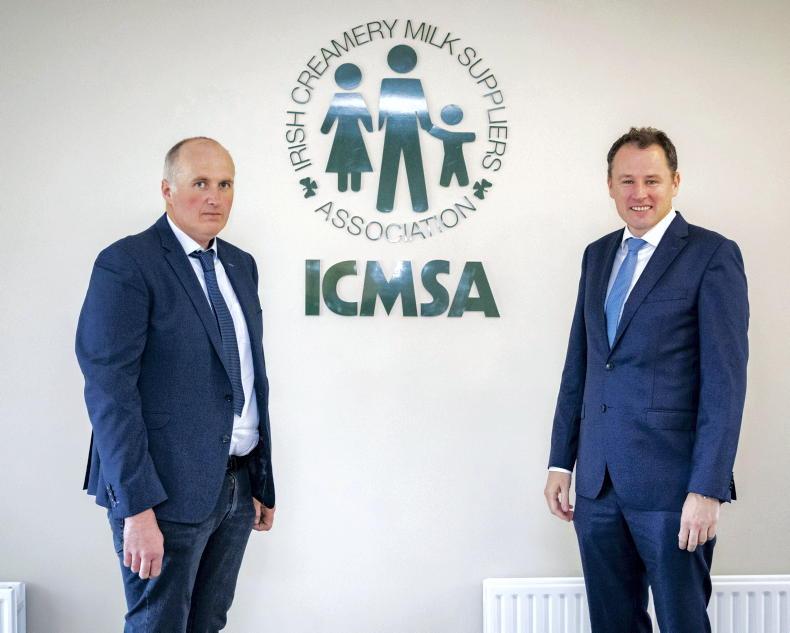Irish Creamery Milk Suppliers Association (ICMSA) president Pat McCormack has said that it appears that the Government wants a nation of "semi-productive land stewards" rather than family farms producing food sustainably and delivering for the rural and national economy.
Speaking prior to a meeting with Minister for Agriculture Charlie McConalogue at the farm organisation’s head office in Limerick, McCormack said that regardless of official assurances, it was absolutely clear from his meetings with Department officials that there was an intention to effectively exclude commercial family farms from financial supports contained in CAP post-2020.
McCormack said the current CAP post-2020 proposals represent a direct attack on commercial family farms.
Change of direction
He said that the role played by agriculture in the economic recovery post-2009 has been completely forgotten and a fundamental change of direction is immediately required if commercial farming is going to have a future in Ireland.
McCormack said the consequences will take a while to work through, but he predicted that the lessening of the agriculture multiplier effect into local rural economies would rob many areas of their economic bedrock and will force a re-examination of this policy.
Agriculture is not just an aspect of our rural economy: it is the whole basis, the platform, the foundation
“If you take a place like Cork or my own county of Tipperary, agriculture is not just an aspect of our rural economy: it is the whole basis, the platform, the foundation for the local rural economy.
“That reality should mean that it gets the commitment and support it merits, but instead we seem to have arrived at an official decision to step away from it in favour of a model based on semi-productive land stewardship,” he said.
“Everyone understands the need for sustainability, but the current direction of policy is going to completely undermine productive agriculture and our multi-billion euro processing and exports.
Effects
“The day-to-day effects of this CAP are going to mean a systematic and ongoing tilt of official support away from commercial farmers and towards a much less active model,” he insisted.
The ICMSA president said that his first fears are for the family dairy farms who will be exposed “when, not if” farm product prices fall.
“We’ve had quite a long period of relatively stable farm product prices probably in excess of 18 months, but those prices have been wiped out by the surge in input costs.
“From analysing the Ornua PPI [we can see] that co-ops held back on prices throughout that period and we know from bitter experience that they will cut farmer price at the very first sign of a market downturn,” said McCormack.
Brexit
The ICMSA man has also acknowledged the fact that Brexit hasn’t gone away.
“Those are the circumstances when the Pillar I direct payments come into their own by providing a degree of reassurance.
“The relentless whittling down of the BPS paid to commercial farmers through a variety of mechanisms shows those farmers that they are not valued.
“And the deliberate design of eco schemes to make them unattractive and unworkable for commercial farmers just reaffirms this trend to move commercial farming to the margins of CAP.
“The lack of a credible Pillar II agri-environment scheme for commercial farmers is another clear example,” he added.
Policy direction
“The Government policy direction we’re seeing here is obvious, it’s about the sacrifice of the commercial farms that are the engine of our rural economy and we need rural TDs to shout ‘stop’.
“Sustainability and commercial farming are compatible, the Government is undermining a massive sector needlessly,” concluded McCormack.
He said that critical decisions will need to be taken in the coming weeks and that the Government and the TDs that support it need to recognise the clear deficiencies in the current proposals.






 This is a subscriber-only article
This is a subscriber-only article











SHARING OPTIONS: